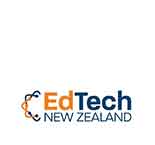In my March blog, I highlighted the urgent need for an AI framework for New Zealand schools. At that time, I was four months into my Master’s in Technological Futures with AcademyEX, focused on Artificial Intelligence in Education (AIED), and gaining valuable insight into AIED through my international network. Now, seven months later – just a month away from completing my degree and two months from the end of the school term – it’s time to reflect on the progress made in this space. So, what has happened on the New Zealand front since then?
AI Landscape in New Zealand
While AIED has rapidly evolved globally, New Zealand’s journey has been mixed. In mid-2023, the Ministry of Education released guidelines for generative AI in schools. Yet, a survey I conducted revealed that three out of four educators and school leaders are unaware of these guidelines, with many emphasising the need for a culturally responsive national framework.
The AI Blueprint for Aotearoa by the AI Forum urged the Ministry of Education (MoE) to champion AI integration. Being part of this Blueprint’s development was incredibly rewarding. Through an ecosystem approach, a five-year vision and three actionable steps were developed, including the now-established Community of Practice (CoP). Additionally, the AI Forum has launched an education workstream group, further advancing efforts to integrate AI into education. These are meaningful strides in the right direction.
Last month MoE added resources on AI to the Tahūrangi website, covering definitions, opportunities and challenges of AI however, a comprehensive national framework is still lacking. My research highlights that this absence is leading to an AI divide among schools. Some are proactive early adopters, while others ban AI tools. This disparity, compounded by the absence of AI policies and insufficient educator training, limits equitable, tech-enhanced learning opportunities for our learners.To address this gap, I have developed a Generative AI Implementation Roadmap for New Zealand schools, now being tested at a secondary school. This roadmap provides a structured approach to responsible AI integration that aligns with schools vision, values and strategic plan to support the effective integration and adoption of Generative AI in the school community.
Academic integrity is still stealing the focus on AIED innovation
A recent RNZ article highlighted that most discussions around AI are still limited to challenges posed to academic integrity and cheating. We need to stop looking for evidence of cheating and start looking for evidence of learning, and begin having more progressive conversations on AI’s role in education that will lead to innovation that augments the learning journey.
Research from Stanford University, “Cheating in the Age of Generative AI”, found that cheating behaviours among high school students remained stable despite the release of AI chatbots. However, I believe that if we continue to lack the adoption of AI policies and classroom charters to define the appropriate use of AI, this ambiguity risks further encouraging plagiarism. A youth survey revealed that 72% of children seek adult support to use AI tools correctly. Without comprehensive support, students will misuse these technologies, leading to ethical concerns and limiting their effective use in education. It is essential that educators develop AI literacy aligned with clear policies to ensure schools provide clarity and direction on the responsible and effective use of AI tools to our learners.
As a mentor for the Asia-Europe Foundation (ASEF), I’ve witnessed inspiring innovation from educators across Asia and Europe. Their commitment to AI integration, despite challenges, demonstrates that with the right drive and support, meaningful progress is achievable.
Beyond New Zealand
In contrast, Australia has made significant strides over the past seven months. In December 2023, they released a national framework for generative AI, NSW developed EduChat, a chatbot for schools. Following successful testing earlier this year, they secured Commonwealth funding to scale it up. As of Term 4, EduChat is now accessible to approximately 100,000 public school teachers across Australia.
UNESCO, on the other hand, has now published global AI competency frameworks, setting international standards for AI integration in education.
Moving Forward
As we look into the future, an important question arises: Is sufficient funding being allocated to developing grassroots talent and nurturing future AI innovators through the education sector?
While the government’s AI Activator programme is a positive step toward integrating AI into businesses, it raises concerns about whether enough resources are directed toward the education sector. To drive meaningful change, we must create opportunities for teachers and EdTech innovators to collaborate in ways that spark new ideas and build valuable partnerships. By working together, we can ensure that AI tools are aligned with the needs of educators and enhance learning outcomes. If you are curious about these initiatives or would like to get involved, please feel free to get in touch via LinkedIn or email.
The future of education is in our hands. Let’s shape it together.
Susana Tomaz
STEAM Coordinator and Across School Lead
Te Kāhui Ako o Pupuke, Westlake Girls High School






